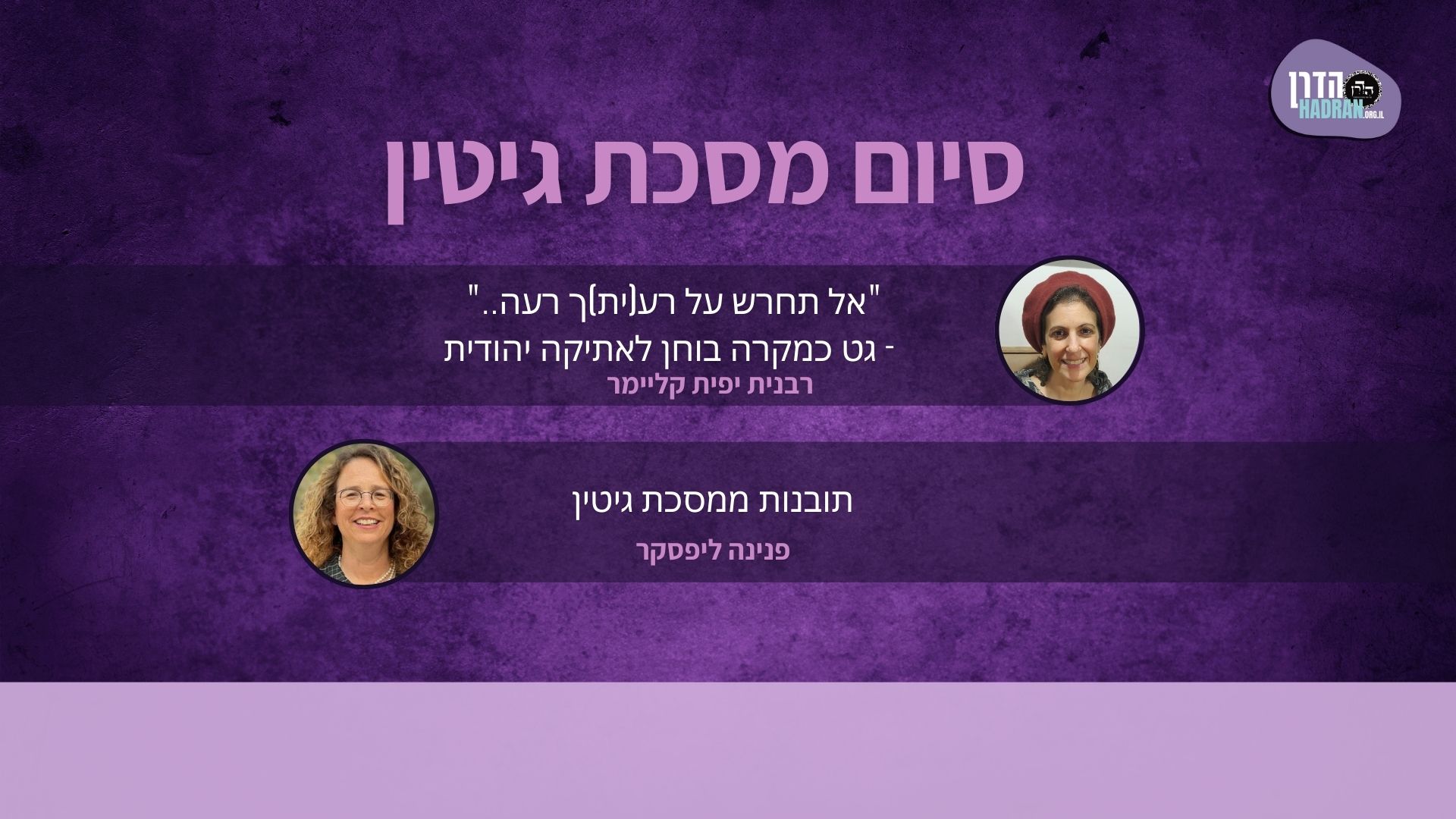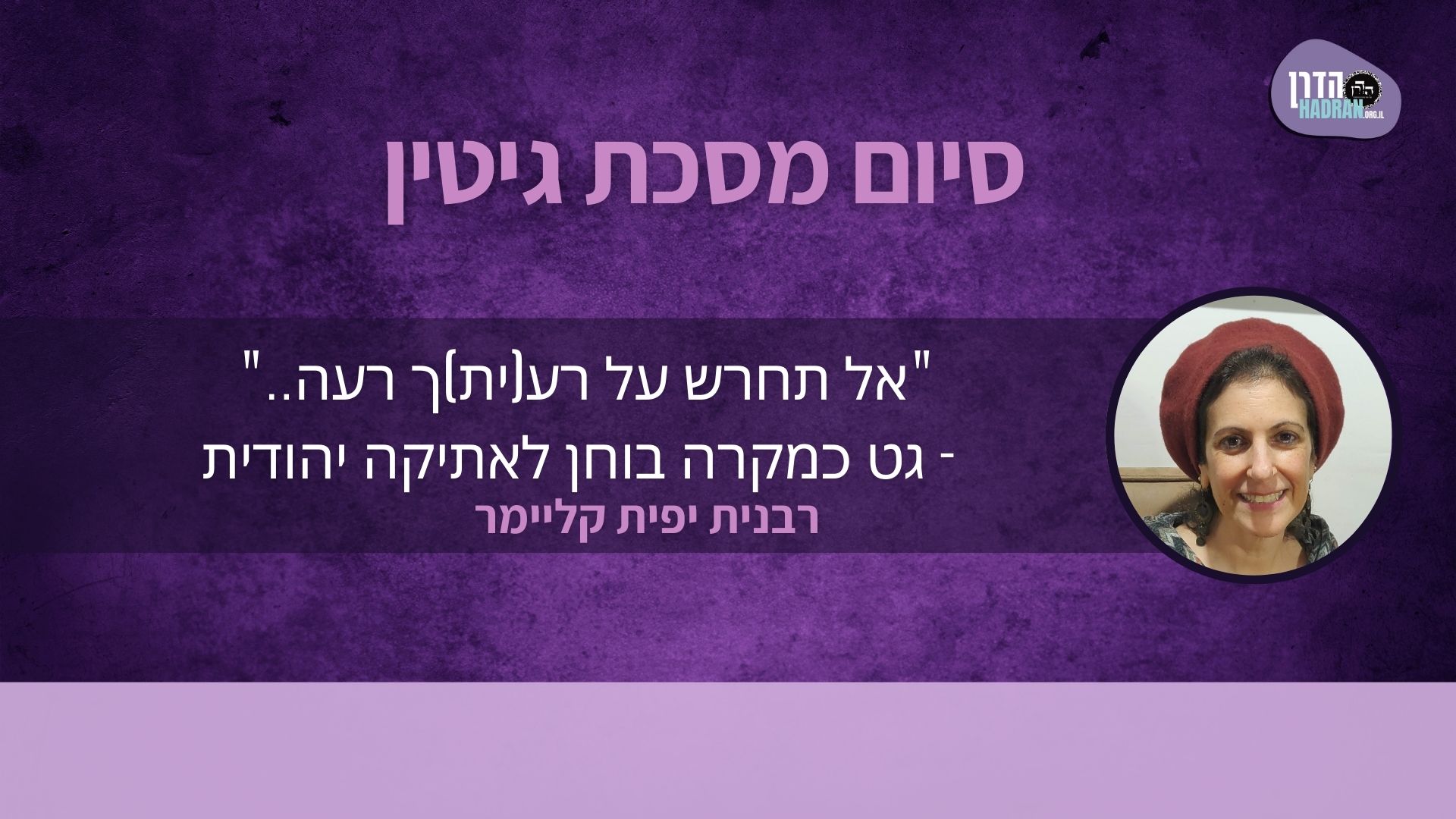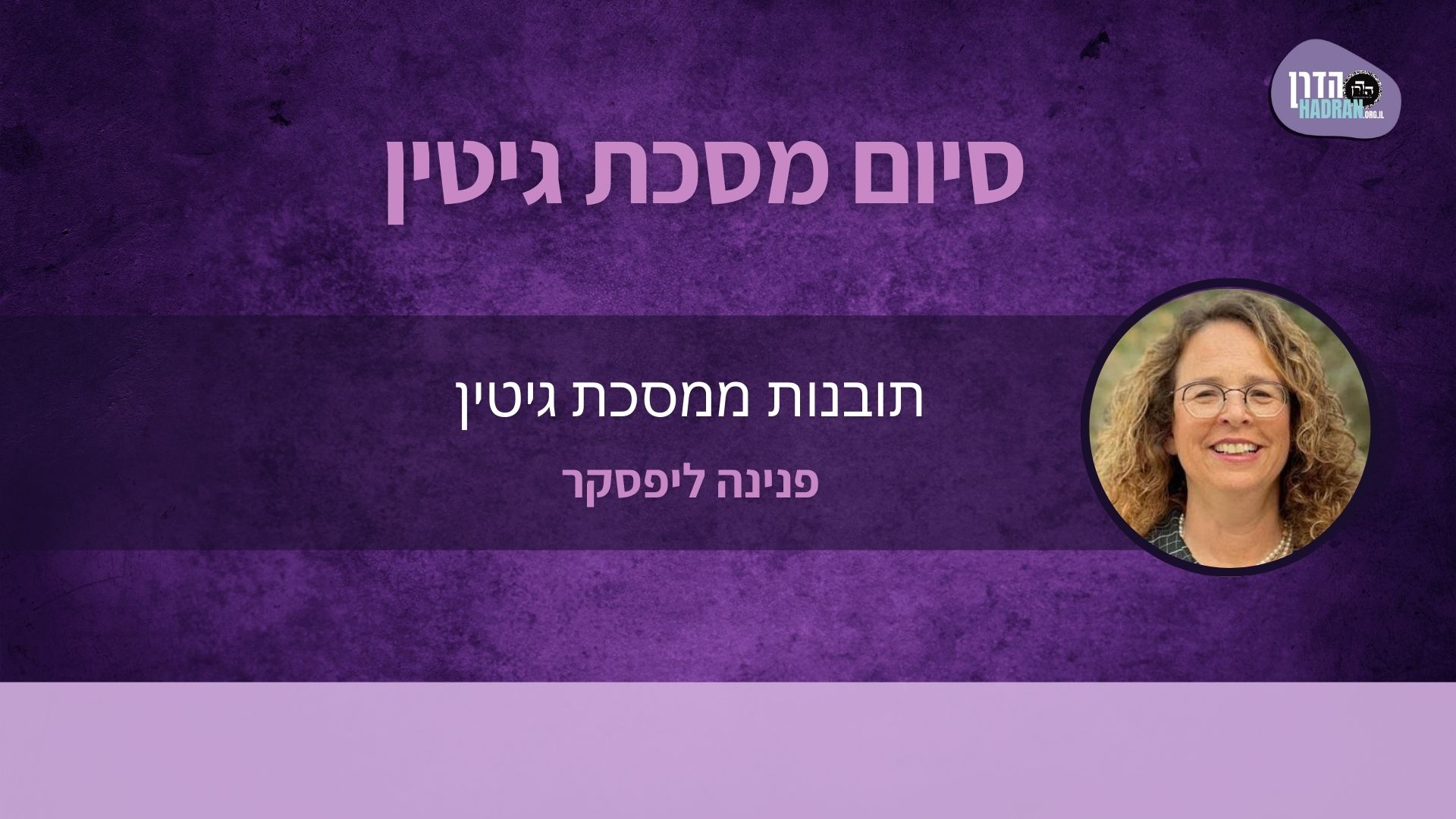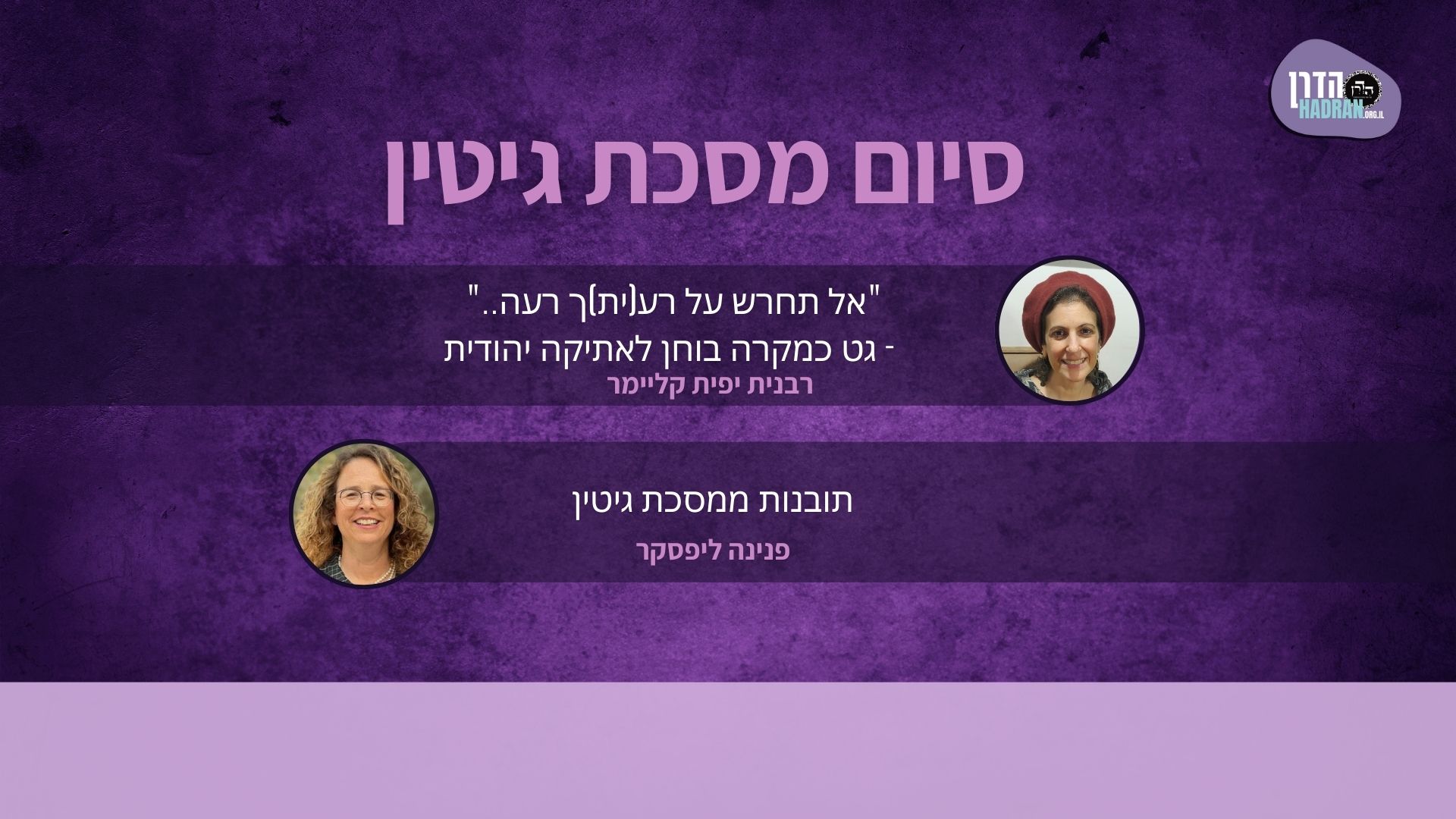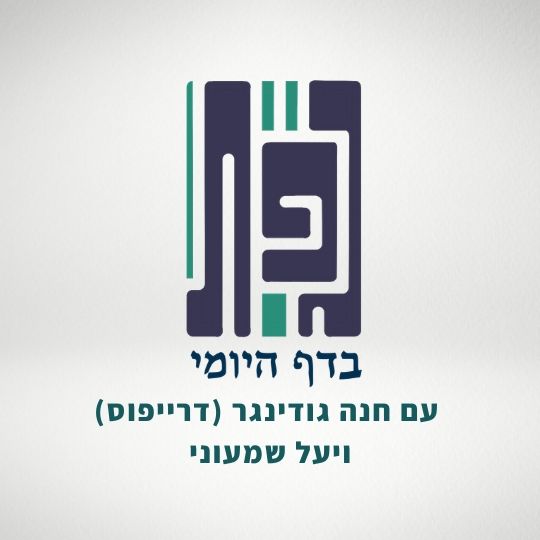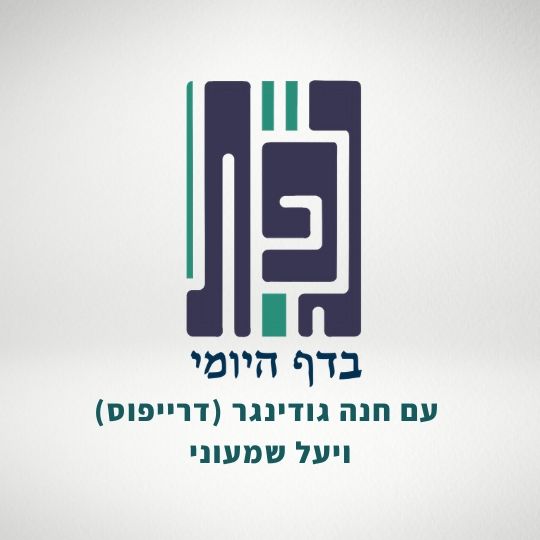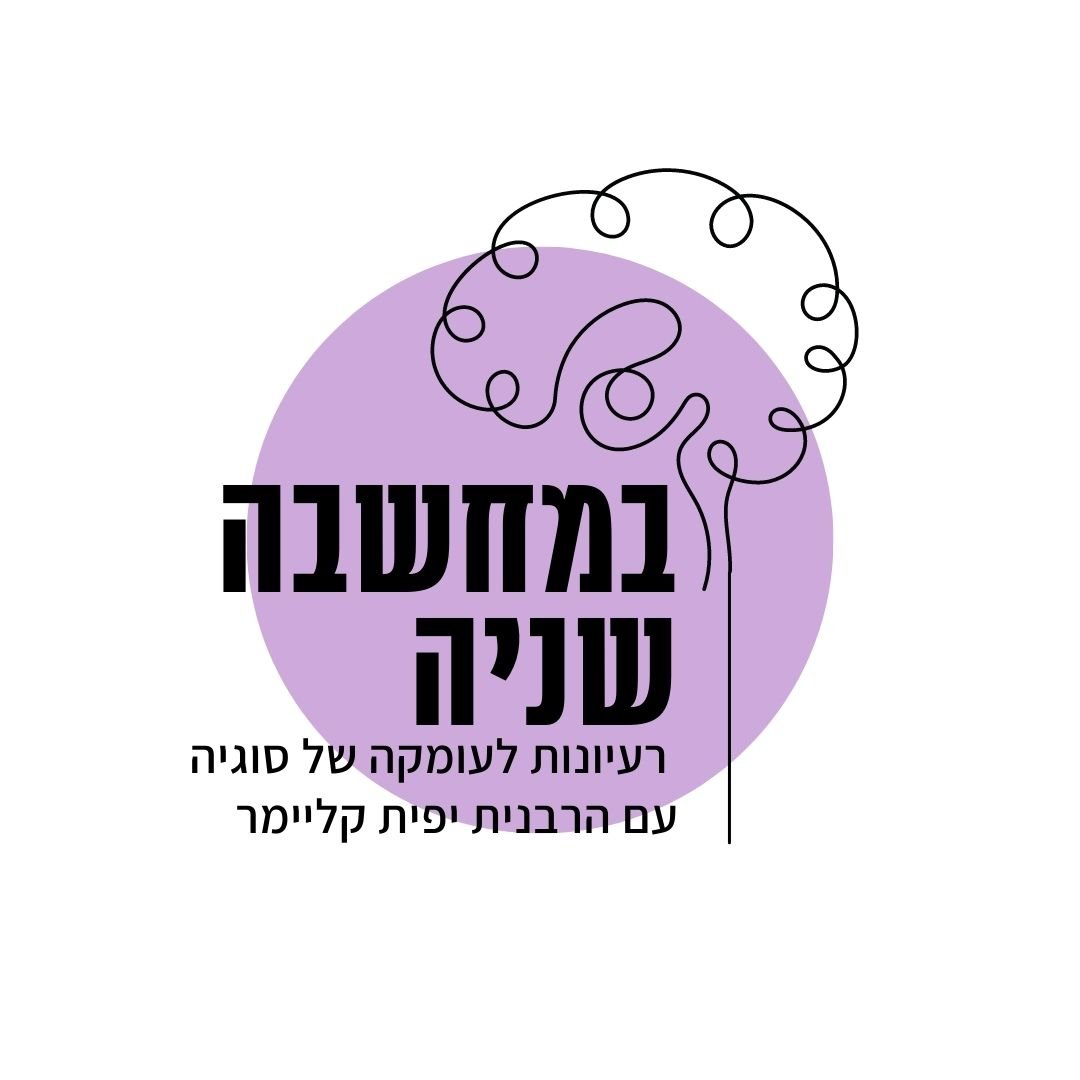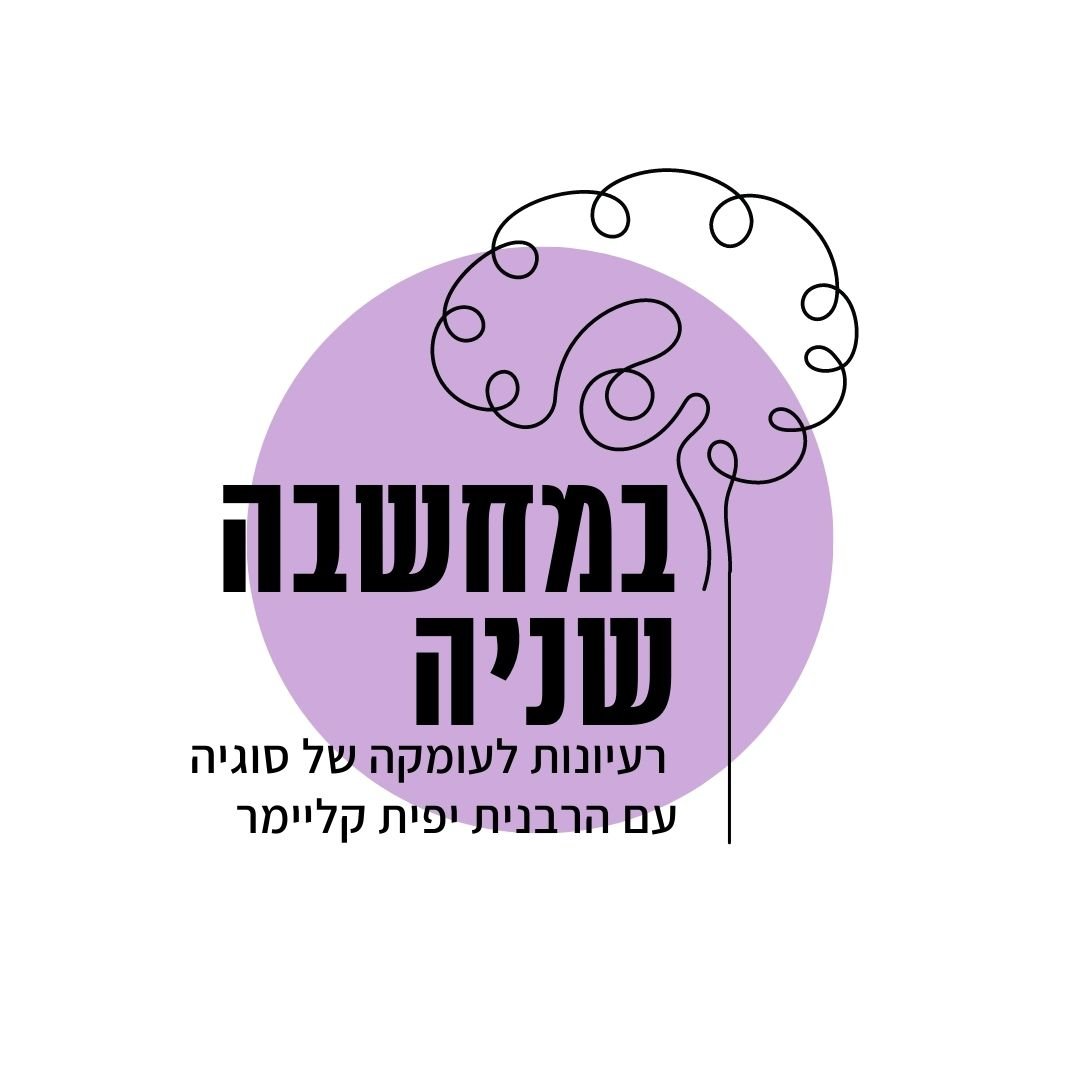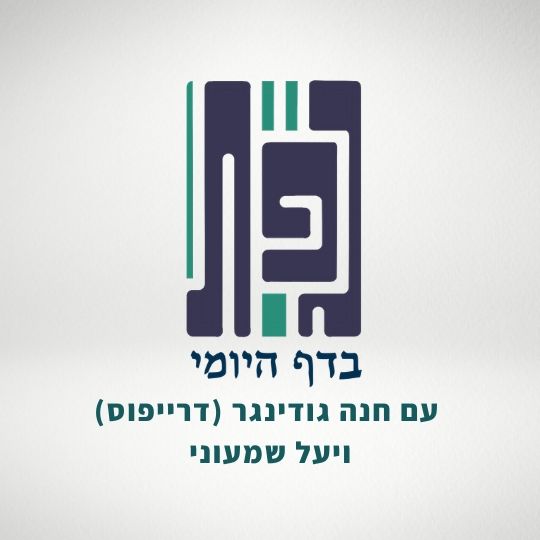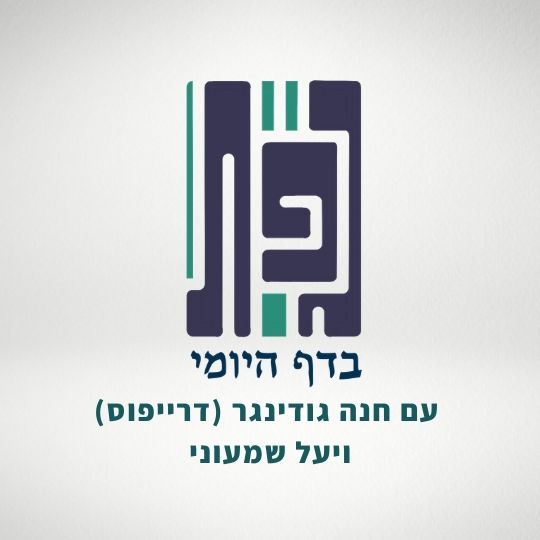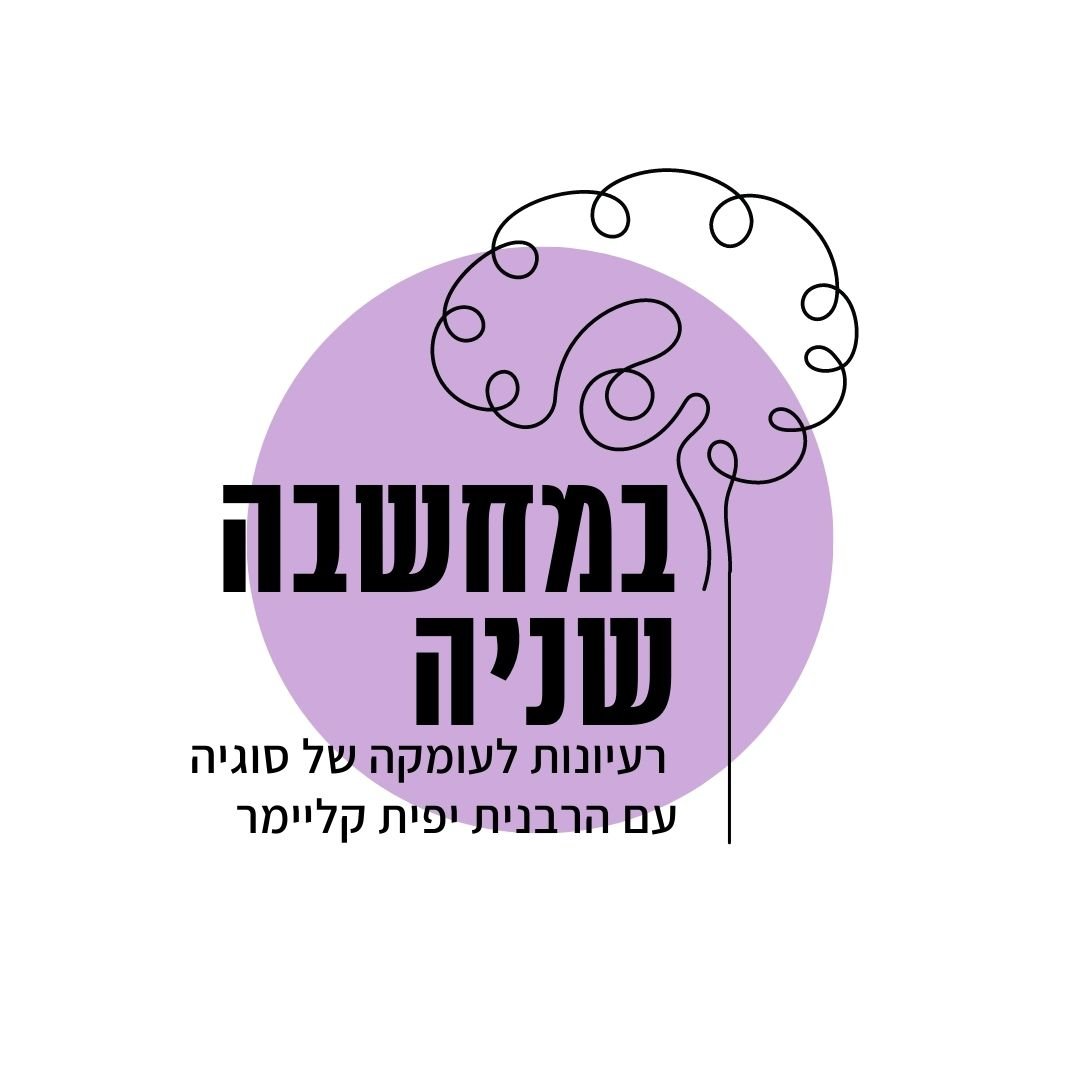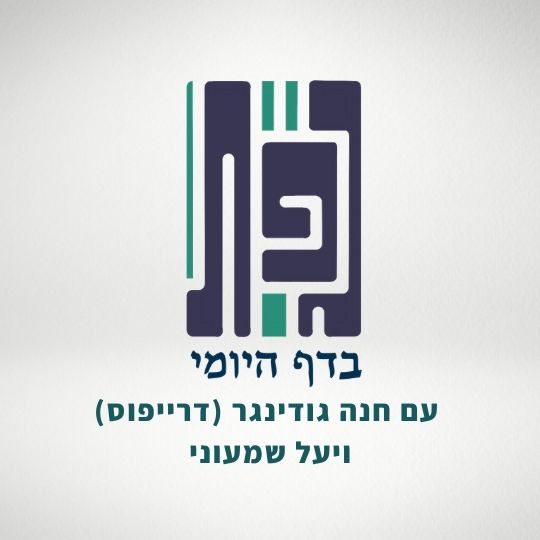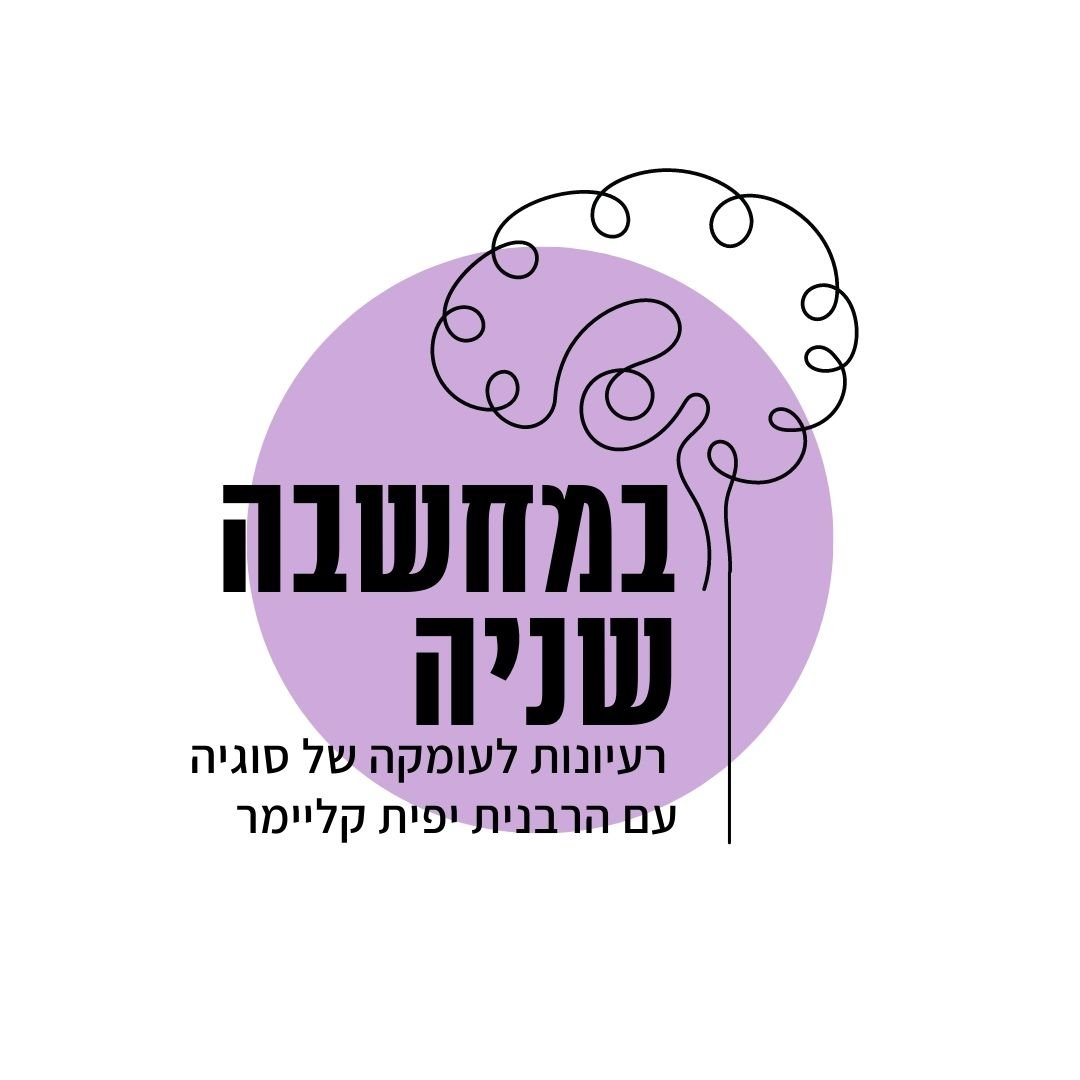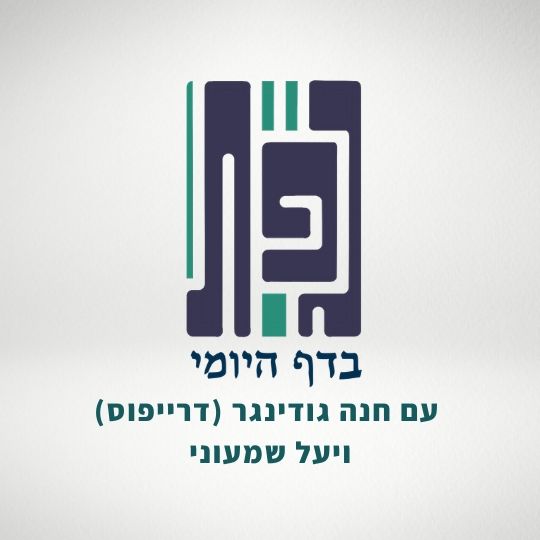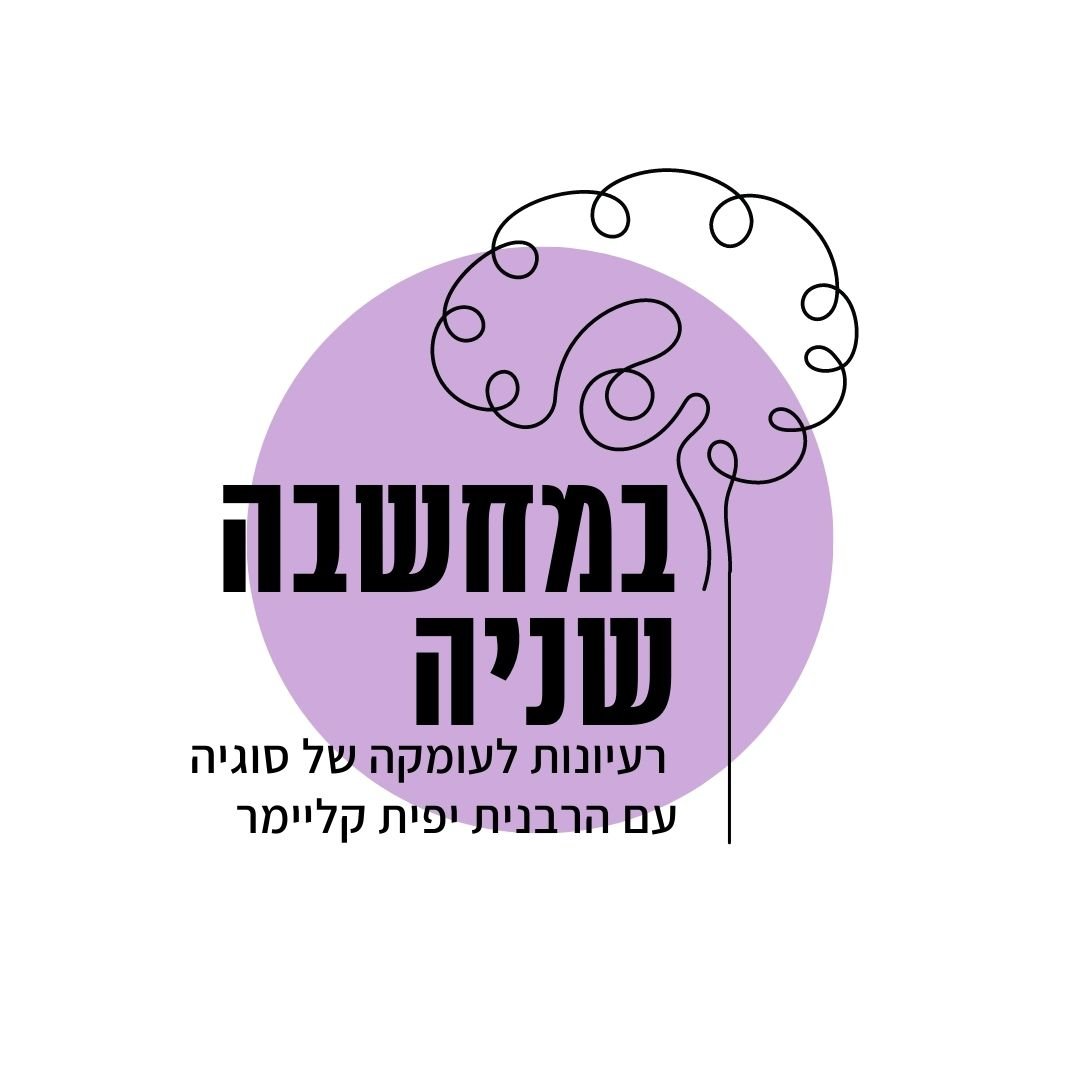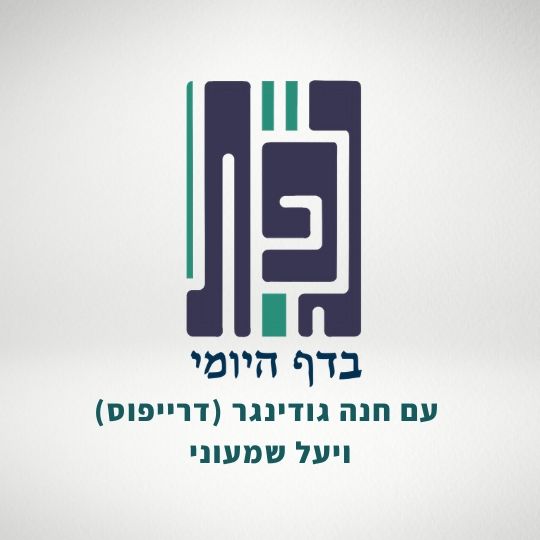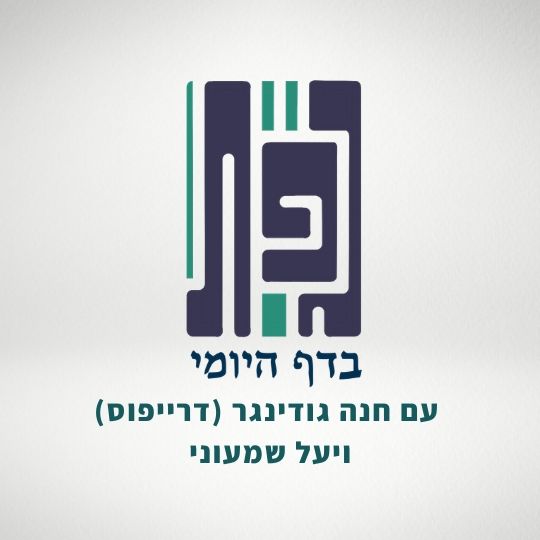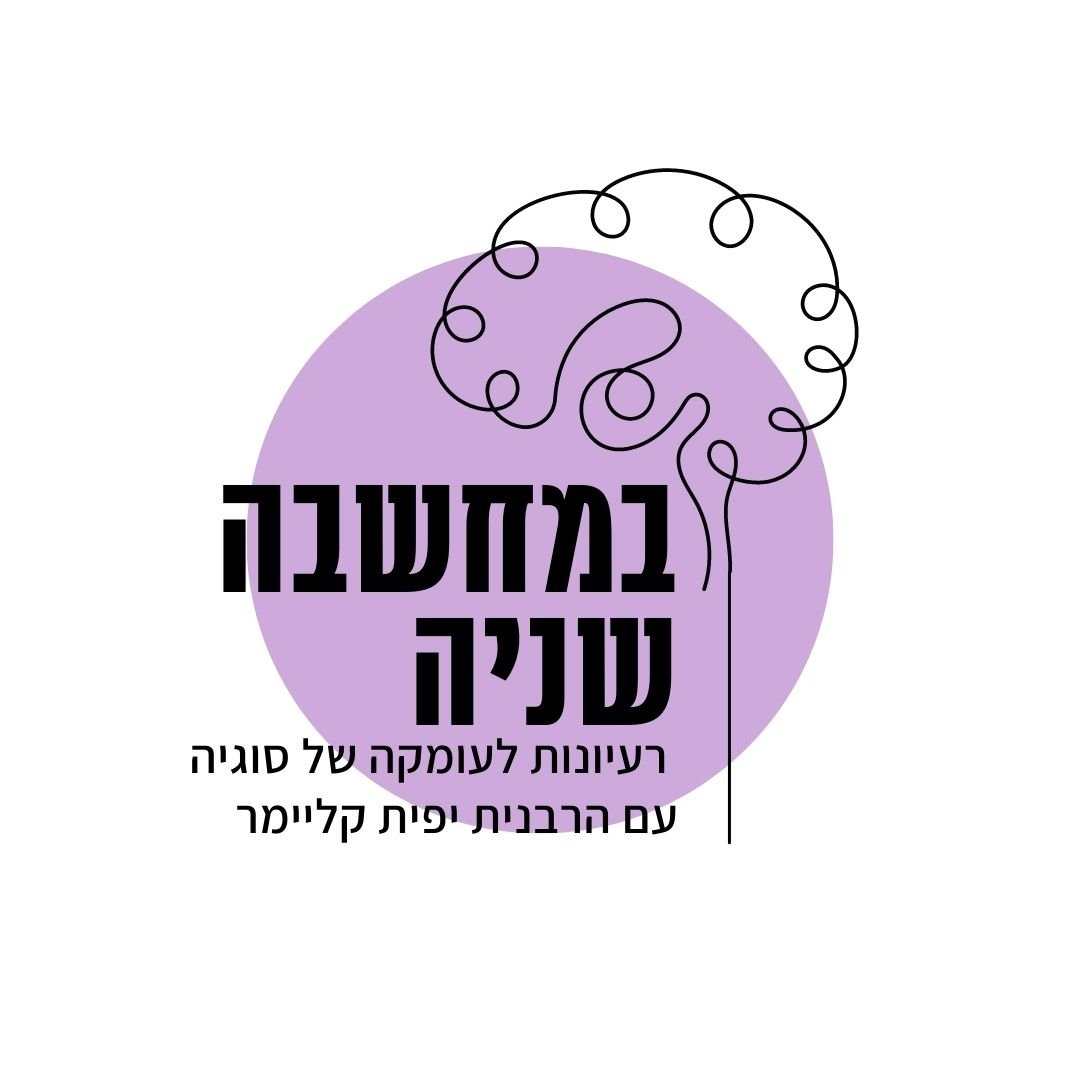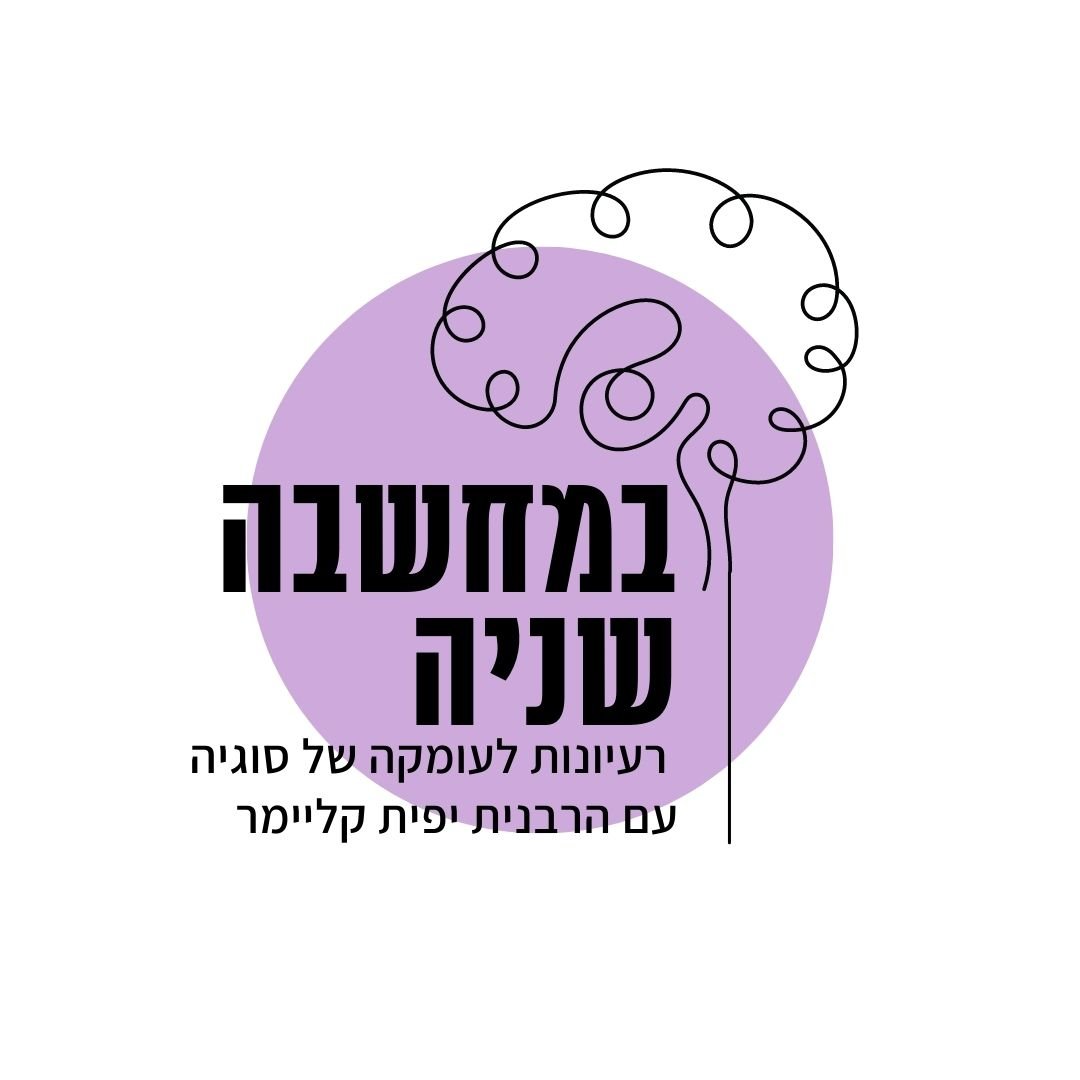גיטין ח
הָעֲשׂוּיָה לִבְרוֹחַ, אֲבָל עָצִיץ, שֶׁאֵינוֹ עָשׂוּי לִבְרוֹחַ – לֹא.
which is made to move, i.e., it is not set in one place. Consequently, one can argue that the soil in the boat is not considered attached to the ground. However, with regard to a flowerpot, which is not made to move, as ordinarily a flowerpot remains in one place, no, one cannot reasonably claim that the fixed soil in it is not part of the ground, even when the pot itself is not touching the ground.
אִי נָמֵי: עַד כָּאן לָא קָאָמְרִי רַבָּנַן הָתָם אֶלָּא בִּסְפִינָה, דְּלָא מַפְסֵיק אַוֵּירָא – דְּמַיָּא כִּי אַרְעָא סְמִיכְתָּא דָּמְיָא; אֲבָל עָצִיץ, דְּמַפְסֵיק אַוֵּירָא – לָא.
Alternatively, one can say the opposite: Perhaps the Rabbis state their opinion, that the soil in the boat is considered to be like the land itself, only there, in the case of a boat, where there is no barrier of airspace between the soil in the boat and the land below, as water is considered to be like solid earth. Therefore, the soil in the boat is viewed as connected to the earth, and has the status of Eretz Yisrael. But in the case of a perforated pot, where there is a barrier of airspace, no, the soil is not connected to the ground.
רַב נַחְמָן בַּר יִצְחָק אָמַר: בִּנְהָרוֹת דְּאֶרֶץ יִשְׂרָאֵל דְּכוּלֵּי עָלְמָא לָא פְּלִיגִי. אֶלָּא כִּי פְּלִיגִי – בַּיָּם הַגָּדוֹל.
Rav Naḥman bar Yitzḥak said: With regard to the rivers that are in Eretz Yisrael on which a boat is sailing, everyone agrees that a bill of divorce written on that boat is considered to be written in Eretz Yisrael. However, when they disagree it is with regard to the Great Sea, i.e., the Mediterranean Sea. In other words, is a boat located in the Mediterranean Sea considered to be in Eretz Yisrael or not?
דְּתַנְיָא: אֵיזֶהוּ אֶרֶץ וְאֵיזֶהוּ חוּצָה לָאָרֶץ? כֹּל שֶׁשּׁוֹפֵעַ וְיוֹרֵד מִטּוּרֵי אַמְנוֹן וְלִפְנִים – אֶרֶץ יִשְׂרָאֵל; מִטּוּרֵי אַמְנוֹן וְלַחוּץ – חוּצָה לָאָרֶץ. הַנִּסִּין שֶׁבַּיָּם – רוֹאִין אוֹתָן כְּאִילּוּ חוּט מָתוּחַ עֲלֵיהֶם מִטּוּרֵי אַמְנוֹן עַד נַחַל מִצְרַיִם; מִן הַחוּט וְלִפְנִים – אֶרֶץ יִשְׂרָאֵל; מִן הַחוּט וְלַחוּץ – חוּצָה לָאָרֶץ.
As it is taught in the Tosefta (Terumot 2:12): What is Eretz Yisrael and what is outside of Eretz Yisrael? Any slope that descends at an angle from Turei Amnon in Syria and inward toward Eretz Yisrael is part of Eretz Yisrael. From Turei Amnon and outward, northward, is considered outside of Eretz Yisrael. With regard to the islands [nissin] that are in the sea, one views them as though a string were pulled taut over them from Turei Amnon in the north to the River of Egypt, Wadi el-Arish, in the south. From the string and inward, i.e., east, is Eretz Yisrael; from the string and outward, west, is considered outside of Eretz Yisrael. This is the opinion of the Rabbis.
רַבִּי יְהוּדָה אוֹמֵר: כֹּל שֶׁכְּנֶגֶד אֶרֶץ יִשְׂרָאֵל – הֲרֵי הוּא כְּאֶרֶץ יִשְׂרָאֵל, שֶׁנֶּאֱמַר: ״וּגְבוּל יָם, וְהָיָה לָכֶם הַיָּם הַגָּדוֹל וּגְבוּל, זֶה יִהְיֶה לָכֶם גְּבוּל יָם״.
Rabbi Yehuda says: Any place that is directly across from Eretz Yisrael, including the sea itself, is considered part of Eretz Yisrael, as it is stated: “And for the western border, you shall have the Great Sea for a border, this shall be your west border” (Numbers 34:6). According to this opinion, the entire territory directly across from Eretz Yisrael is considered part of Eretz Yisrael.
וְהַנִּסִּין שֶׁבַּצְּדָדִין, רוֹאִין אוֹתָן כְּאִילּוּ חוּט מָתוּחַ עֲלֵיהֶן מִקַּפְלוּרְיָא וְעַד יָם אוֹקְיָינוֹס, וּמִנַּחַל מִצְרַיִם וְעַד יָם אוֹקְיָינוֹס; מִן הַחוּט וְלִפְנִים – אֶרֶץ יִשְׂרָאֵל, מִן הַחוּט וְלַחוּץ – חוּצָה לָאָרֶץ.
And with regard to the islands that are on the sides, which do not exactly line up on the north or the south, one views them as though a string were pulled taut over them in the north from Kefalorya, west of Turei Amnon, to the Atlantic Ocean, and in the south from the River of Egypt westward until the Atlantic Ocean. Those islands that lie from the string and inward are part of Eretz Yisrael, whereas those from the string and outward are outside of Eretz Yisrael.
וְרַבָּנַן, הַאי ״וּגְבוּל״ מַאי עָבְדִי לֵיהּ? מִיבְּעֵי לֵיהּ לְנִסִּין. וְרַבִּי יְהוּדָה, נִסִּין לָא צְרִיכִי קְרָא.
The Gemara asks: And the Rabbis, what do they do with this verse: “And for the border”? Rabbi Yehuda’s opinion that the border of Eretz Yisrael extends into the sea is apparently supported by this verse. The Gemara answers: They require it to teach that the islands themselves are considered to be within Eretz Yisrael. And Rabbi Yehuda would respond that an additional verse is not required to teach the halakha concerning the islands, as it is clear that they are part of Eretz Yisrael.
רַבִּי מֵאִיר אוֹמֵר: עַכּוֹ – כְּאֶרֶץ יִשְׂרָאֵל וְכוּ׳: בְּעוֹ מִינֵּיהּ מֵרַבִּי חִיָּיא בַּר אַבָּא: הַמּוֹכֵר עַבְדּוֹ לְסוּרְיָא, כְּמוֹכֵר בְּחוּצָה לָאָרֶץ דָּמֵי, אוֹ לָא?
§ The mishna teaches that Rabbi Meir says: Akko is like Eretz Yisrael with regard to bills of divorce. The Sages raised a dilemma before Rabbi Ḥiyya bar Abba: One who sells his slave to a master in Syria, is he considered like one who sells his slave outside of Eretz Yisrael, in which case the seller is penalized by the emancipation of his slave, or not?
אֲמַר לְהוּ: תְּנֵיתוּהָ, רַבִּי מֵאִיר אוֹמֵר: עַכּוֹ – כְּאֶרֶץ יִשְׂרָאֵל לְגִיטִּין; לְגִיטִּין – אִין, לַעֲבָדִים – לָא, וְכׇל שֶׁכֵּן סוּרְיָא דִּמְרַחֲקָא טוּבָא.
Rabbi Ḥiyya bar Abba said to them: You learned a resolution for this dilemma from the mishna: Rabbi Meir says that Akko is like Eretz Yisrael with regard to bills of divorce, from which it may be inferred: With regard to bills of divorce, yes, but with regard to slaves, no, it is not considered part of Eretz Yisrael, and all the more so Syria, which is far more distant than Akko from the main areas of Eretz Yisrael. Therefore, this owner has sold his slave outside of Eretz Yisrael.
תָּנוּ רַבָּנַן: בִּשְׁלֹשָׁה דְּרָכִים שָׁוְותָה סוּרְיָא לְאֶרֶץ יִשְׂרָאֵל, וּבִשְׁלֹשָׁה לְחוּצָה לָאָרֶץ. (סִימָן: עָב בַּר רַק). עֲפָרָהּ טָמֵא – כְּחוּצָה לָאָרֶץ, וְהַמּוֹכֵר עַבְדּוֹ לְסוּרְיָא – כְּמוֹכֵר בְּחוּצָה לָאָרֶץ. וְהַמֵּבִיא גֵּט מִסּוּרְיָא – כְּמֵבִיא מֵחוּצָה לָאָרֶץ.
Having mentioned the status of Syria, the Gemara cites a related halakha. The Sages taught (Tosefta, Kelim 1:5): In three ways Syria is equal to Eretz Yisrael, and in three ways it is similar to outside of Eretz Yisrael. The Gemara inserts a mnemonic device for the ways in which Syria is different than Eretz Yisrael and is similar to Eretz Yisrael: Ayin beit, beit reish, reish kuf. Syria has the status of land that is outside of Eretz Yisrael in the following respects: First, its soil is ritually impure like that of land outside of Eretz Yisrael. And the second is that one who sells his slave to a master in Syria is like one who sells him to a master outside of Eretz Yisrael, and the second master is obligated to emancipate the slave. And third, one who brings a bill of divorce from Syria is like one who brings it from outside of Eretz Yisrael, in that he must say: It was written in my presence and it was signed in my presence.
וּבִשְׁלֹשָׁה לְאֶרֶץ יִשְׂרָאֵל: חַיֶּיבֶת בְּמַעֲשֵׂר וּבִשְׁבִיעִית – כְּאֶרֶץ יִשְׂרָאֵל, וְהָרוֹצֶה לִיכָּנֵס לָהּ בְּטׇהֳרָה – נִכְנָס, וְהַקּוֹנֶה שָׂדֶה בְּסוּרְיָא –
And in three ways Syria is similar to Eretz Yisrael: Its produce is obligated in tithe and in the mitzvot of the Sabbatical Year like Eretz Yisrael. And one who wishes to enter it while remaining in a state of ritual purity may so enter, as though it were part of Eretz Yisrael. And one who acquires a field in Syria
כְּקוֹנָהּ בְּפַרְוָארֵי יְרוּשָׁלַיִם. חַיֶּיבֶת בְּמַעֲשֵׂר וּבִשְׁבִיעִית כְּאֶרֶץ יִשְׂרָאֵל – קָסָבַר כִּיבּוּשׁ יָחִיד שְׁמֵיהּ כִּיבּוּשׁ.
is like one who purchases a field in the outskirts [parvarei] of Jerusalem. The Gemara clarifies: The tanna who says Syria is obligated in tithe and the mitzvot of the Sabbatical Year like Eretz Yisrael holds that the conquest of an individual is called a conquest. Once Syria was conquered by King David, who is considered an individual in this regard, the sanctity of Eretz Yisrael applied to it and its residents became obligated in the mitzvot of Eretz Yisrael.
וְהָרוֹצֶה לִיכָּנֵס לָהּ בְּטׇהֳרָה נִכְנָס – וְהָאָמְרַתְּ עֲפָרָהּ טָמֵא? בְּשִׁידָּה, תֵּיבָה וּמִגְדָּל.
The baraita teaches: And one who wishes to enter it and remain in a state of ritual purity may so enter. The Gemara asks: But didn’t you say that its soil is ritually impure? How then is it possible for one to enter it in a state of ritual purity? The Gemara answers: The baraita means that one enters it in a chest, a box, or a cabinet. In this case he remains pure, as he did not come into contact with the ground itself.
דְּתַנְיָא: הַנִּכְנָס לְאֶרֶץ הָעַמִּים בְּשִׁידָּה תֵּיבָה וּמִגְדָּל – רַבִּי מְטַמֵּא, רַבִּי יוֹסֵי בְּרַבִּי יְהוּדָה מְטַהֵר. וַאֲפִילּוּ רַבִּי לָא קָא מְטַמֵּא אֶלָּא בְּאֶרֶץ הָעַמִּים, דְּגָזְרוּ עַל גּוּשָׁהּ וְעַל אֲוִירָהּ, אֲבָל סוּרְיָא, עַל גּוּשָׁהּ גָּזְרוּ, עַל אֲוִירָהּ לֹא גָּזְרוּ.
As it is taught in a baraita: With regard to one who enters the land of the nations, i.e., any territory outside of Eretz Yisrael, in a chest, a box, or a cabinet, Rabbi Yehuda HaNasi deems him ritually impure, and Rabbi Yosei, son of Rabbi Yehuda, deems him pure. And even Rabbi Yehuda HaNasi deems one who did not touch the ground itself impure only in the land of the nations, concerning which they decreed impurity upon both its clumps of soil and upon its air. However, with regard to Syria, everyone agrees that they decreed impurity upon its clumps of soil, but they did not decree impurity upon its air. Therefore, it is possible to enter Syria and remain in a state of ritual purity if one does not touch the ground itself.
וְהַקּוֹנֶה שָׂדֶה בְּסוּרְיָא כְּקוֹנָהּ בְּפַרְוָארֵי יְרוּשָׁלַיִם – לְמַאי הִילְכְתָא? אָמַר רַב שֵׁשֶׁת: לוֹמַר שֶׁכּוֹתְבִין עָלָיו אוֹנוֹ, וַאֲפִילּוּ בְּשַׁבָּת.
The baraita further teaches: And one who purchases a field in Syria is like one who purchases a field in the outskirts of Jerusalem. The Gemara asks: With regard to which halakha was this stated? What practical ruling is taught by this statement? Rav Sheshet says: This serves to say that one writes a bill of sale [ono] for this purchase, and one may write a bill of sale even on Shabbat.
בְּשַׁבָּת סָלְקָא דַעְתָּךְ?! כִּדְאָמַר רָבָא: אוֹמֵר לְגוֹי וְעוֹשֶׂה; הָכָא נָמֵי אוֹמֵר לְגוֹי וְעוֹשֶׂה. וְאַף עַל גַּב דַּאֲמִירָה לְגוֹי שְׁבוּת, מִשּׁוּם יִשּׁוּב אֶרֶץ יִשְׂרָאֵל – לָא גְּזוּר רַבָּנַן.
The Gemara asks: Can it enter your mind that one may write this bill of sale on Shabbat? Writing on Shabbat is a prohibited labor for which one is liable to receive court-imposed capital punishment. The Gemara explains: This is as Rava says with regard to a similar issue, that one tells a gentile that he should do it, and he does so. Here too, it is referring to a situation where one tells a gentile that he should write a bill of sale, and he does so. And even though the halakha generally is that telling a gentile to perform an action that is prohibited for a Jew on Shabbat violates a rabbinic decree, since the Sages prohibited instructing a gentile to perform prohibited labor on behalf of a Jew on Shabbat, here the Sages did not impose this decree, due to the mitzva of settling Eretz Yisrael.
תָּנוּ רַבָּנַן: עֶבֶד שֶׁהֵבִיא גִּיטּוֹ, וְכָתוּב בּוֹ: ״עַצְמְךָ וּנְכָסַיי קְנוּיִין לָךְ״, עַצְמוֹ – קָנָה, נְכָסִים – לֹא קָנָה.
§ The Sages taught: With regard to a slave who brought his bill of manumission to a court, and it is written in it: You and my property are transferred to you, he acquires himself via this document, and he is emancipated. However, he does not acquire the property unless the document is confirmed in court through its witnesses, like other documents.
אִיבַּעְיָא לְהוּ: ״כֹּל נְכָסַיי קְנוּיִין לָךְ״, מַהוּ? אָמַר אַבָּיֵי: מִתּוֹךְ שֶׁקָּנָה עַצְמוֹ, קָנָה נְכָסִים.
A dilemma was raised before the Sages: If the bill of manumission stated: All of my property is transferred to you, what is the halakha? Abaye said: Since he acquired himself as a freeman, as he is included in the property mentioned in the document, he acquires the rest of the property as well.
אֲמַר לֵיהּ רָבָא: בִּשְׁלָמָא עַצְמוֹ לִיקְנֵי, מִידֵּי דְּהָוֵה אַגֵּט אִשָּׁה, אֶלָּא נְכָסִים לָא לִיקְנֵי, מִידֵּי דְּהָוֵה אַקִּיּוּם שְׁטָרוֹת דְּעָלְמָא!
Rava said to Abaye: Granted, he should acquire himself, just as it is in the case of a bill of divorce of a woman, who is divorced when she brings the document herself. However, he should not acquire the property, just as it is in the case of the ratification of typical legal documents. If someone brings a typical document that deals with monetary matters that has not been ratified, the court will not rely on that document. So too here, as the bill of manumission, which includes a transfer of property, has not been ratified, he should not acquire the property.
הֲדַר אָמַר אַבָּיֵי: מִתּוֹךְ שֶׁלֹּא קָנָה נְכָסִים – לֹא קָנָה עַצְמוֹ. אֲמַר לֵיהּ רָבָא: בִּשְׁלָמָא נְכָסִים לָא לִיקְנֵי, מִידֵּי דְּהָוֵה אַקִּיּוּם שְׁטָרוֹת דְּעָלְמָא, אֶלָּא עַצְמוֹ לִיקְנֵי, מִידֵּי דְּהָוֵה אַגֵּט אִשָּׁה!
After hearing Rava’s objection, Abaye then said the opposite: Since he did not acquire the property, he does not acquire himself either. Rava said to him: Granted, he does not acquire the property, just as it is in the case of the ratification of typical legal documents; however, he should acquire himself, just as it is in the case of a bill of divorce of a woman, who can bring her own bill of divorce and testify about it.
אֶלָּא אָמַר רָבָא: אֶחָד זֶה וְאֶחָד זֶה, עַצְמוֹ – קָנָה, נְכָסִים – לֹא קָנָה. אֲמַר לֵיהּ רַב אַדָּא בַּר מַתְנָה לְרָבָא: כְּמַאן – כְּרַבִּי שִׁמְעוֹן, דְּאָמַר פָּלְגִינַן דִּיבּוּרָא;
Rather, Rava says: With regard to both this and that, both in the case when the bill of manumission states: You and my property, and when it says: All of my property, he acquires himself but he does not acquire the property. Rav Adda bar Mattana said to Rava: In accordance with whose opinion do you say this? In accordance with the opinion of Rabbi Shimon, who said that we divide the statement. In other words, even if there is only one document or a single testimony, containing one general statement, it can be divided so that the court accepts it in part and rejects the rest.
דִּתְנַן: הַכּוֹתֵב כׇּל נְכָסָיו לְעַבְדּוֹ – יָצָא בֶּן חוֹרִין. שִׁיֵּיר קַרְקַע כָּל שֶׁהוּא, לֹא יָצָא בֶּן חוֹרִין. רַבִּי שִׁמְעוֹן אוֹמֵר:
As we learned in a mishna (Pe’a 3:8): One who writes, i.e., gives via a document, all of his property to his slave, the slave has been emancipated, but if he reserved for himself even any amount of land, then he has not been emancipated, as perhaps he reserved the slave for himself as well. Rabbi Shimon says:

